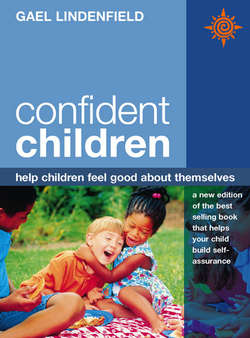Читать книгу Confident Children: Help children feel good about themselves - Gael Lindenfield, Gael Lindenfield - Страница 26
Step 1: Become acquainted
with your ‘auto-parent’
Оглавление‘We don’t see things as they are, we see things as we are.’
Anais Nin
I know that most of my own ‘sins’ against my children’s confidence and well-being have been committed in spite of my good intentions. I used to hear myself saying:
‘How could I have done that?’
‘I didn’t mean to say that.’
‘I didn’t realize that I was doing that.’
I was doing and saying things I would never have done or said in other relationships. Quite often I was behaving in ways that I knew had hurt and restricted me as a child and that I had sworn no one would ever see me doing to my children. Why should this have been so?
The reason was that when my children were very young I was often acting in ‘auto-parent’ mode. Like many stressed and anxious mothers, I did not have the energy to think through and make conscious choices about what words and actions I would like to use, I just reacted and acted spontaneously. The difficulty was that my ‘spontaneity’ was (as is everybody’s) more the product of my own experiences as a child and my cultural conditioning than of any pure and virtuous maternal instinct. When I later began to try and understand my behaviour I realized that in my parenting role I was often acting as the people who reared me as a child behaved. This was a tremendous shock to me, because I had hitherto liked to consider myself a very different kind of mother! The hard truth I had to swallow was that, in spite of all my good intentions and studies of good child care, I was still under the powerful influence of my early role-models.
I had an unusually deprived childhood; hopefully you have more satisfactory parenting models lodged in your auto-parent. Nevertheless it may still be worth doing some serious self-reflection to enable you to make sure that, when your auto-parent is in operation (and it often has to be), it’s doing the job you want it to do (and not, for example, the job that anyone else may have programmed it to do!) Remember that even if the parenting you experienced was ‘good enough’ for you it may not be exactly right for building the confidence of your particular children. After all, some of the beliefs underlying your parents’ style may simply be out of date in today’s culture (e.g. the ‘Spare the rod, spoil the child’ variety).
The exercise on page 28 will help you to become much more aware of the beliefs that may have been programmed into your auto-parent, and then replace those you want to change with alternatives.
